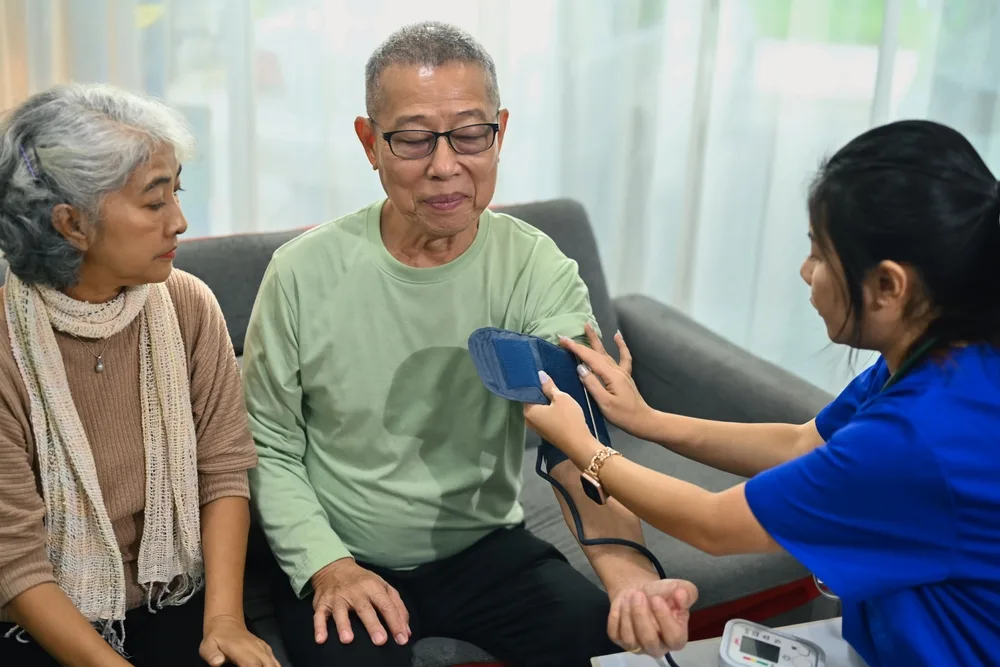
Elder abuse is a growing yet underreported issue in the United States. According to a 2022 study from the National Coalition on Aging, nearly five million seniors suffer through elder abuse.
While many states have mandatory laws about reporting elder abuse, there are many reasons why cases continue to slip through the cracks.
A common issue is that elderly victims are often unable to file a report. This is either because they have a physical or mental impairment which makes it difficult to reach out for help, or because they feel too reliant on the person committing the act.
Many seniors are also afraid of being placed in an institution after filing a report. If the abuse is happening from someone the senior is close with, there may also be a fear of getting the abuser in trouble.
There are even some cases which are reported, but get ignored because the senior is not taken seriously due to his or her age. Some seniors might even feel ashamed and uncomfortable talking about their abuse.
If you are concerned a senior is suffering through elder abuse but is unable to report it, there are a few warning signs to keep an eye out for.
Physical Elder Abuse
There are several categories of elder abuse. The first is physical abuse, which is typically the easiest to spot.
Physical elder abuse refers to any case where a senior is being physically assaulted by another individual, usually a person in a caretaker position.
You can often spot physical elder abuse by noticing signs of unexplained injuries. These can range from bruises or welts to cuts, scrapes or even broken bones.
Some more subtle signs of physical abuse include pressure marks or bed sores.
If the incident occurs in a nursing home or senior community, staff members may attempt to cover up the injuries by making up a story about how it happened. Always speak with the senior directly, without any staff members present so he or she feels comfortable enough to tell you the truth.
If he or she seems hesitant but still agrees with the story, it is worth reporting to another staff member. Make sure to follow up with both the senior as well as upper management until you know whether it was a legitimate accident or a case of abuse.
Emotional Abuse
Emotional abuse can be much harder to spot because the signs are not always obvious. Emotional abuse includes cases where a senior is being disrespected and treated in a harmful manner.
This can include being insulted, ignored or threatened. One sign of emotional abuse is the senior suddenly becoming isolated or withdrawn from others.
You may also notice an uptick in extreme emotions, including anxiety, fear, anger or depression. He or she may also be uncomfortable talking to you.
With emotional abuse, seniors often feel unsafe discussing what happened. They may also feel like their opinion doesn’t matter because of the nature of the abuse.
As with physical abuse, getting the senior away from his or her abuse and into a safe space where he or she can openly talk is key for identifying abuse.
Financial Abuse
Another type of abuse which can be difficult to detect is financial. Financial abuse does not have any physical signs, and in some cases, the senior may not be aware of it occurring until it is too late.
Financial abuse is more common in seniors who suffer from dementia or other cognitive impairments, since they rarely manage their finances directly and have a difficult time noticing financial changes because of their conditions.
The most notable sign of financial abuse is when large sums of money are missing from bank statements, or you notice valuable items are no longer in the house. Another warning sign is the senior being unable to access financial records.
Not all financial abuse involves theft. Some seniors are tricked into signing away items or paying extra for services they do not need.
Because many seniors are unaware financial abuse takes place, one good way to catch it is keeping an eye on their finances. Ask to see financial statements, especially if the senior is no longer in charge of his or her spending.
If you catch signs of fraudulent spending, report it as soon as possible to the bank or credit card company. They may be able to freeze the account and reverse the charges.
If the senior is unable to handle his or her finances, consider appointing a trusted family member to manage the accounts. If this is not an option, there are financial companies that can help seniors with their spending.
Neglect
Not all elderly abuse is direct. Many seniors are reliant on caregivers to get through the day. When a caregiver does not provide accurate care for the senior he or she is responsible for, this counts as neglect.
Neglect is not always intentional, but whether it is malicious or not, it can still be harmful for the senior. An obvious sign of neglect is when the senior lacks basic hygiene, lives in a messy home and does not have enough food. You may also notice he or she is not taking his or her medication or is going around without medical aids.
You may also notice neglect based on the way caregivers act. Many caregivers who act neglectful will also be aggressive or angry towards the senior whenever he or she asks for assistance.
Another warning sign is when the caregiver does not let the senior speak with you alone. Neglect should be reported as soon as possible. If the nursing home or community does not take any steps to improve living conditions, strongly consider moving into a safer location.
Getting Help
If you believe a senior is in immediate danger as a result of abuse, call your local police for assistance. If the abuse is not life-threatening, you can call Adult Protective Services for your state to get additional help.
If the abuse takes place at a nursing home, assisted living facility or similar home, make a report to your local Long Term Care Ombudsman.
By Admin –



